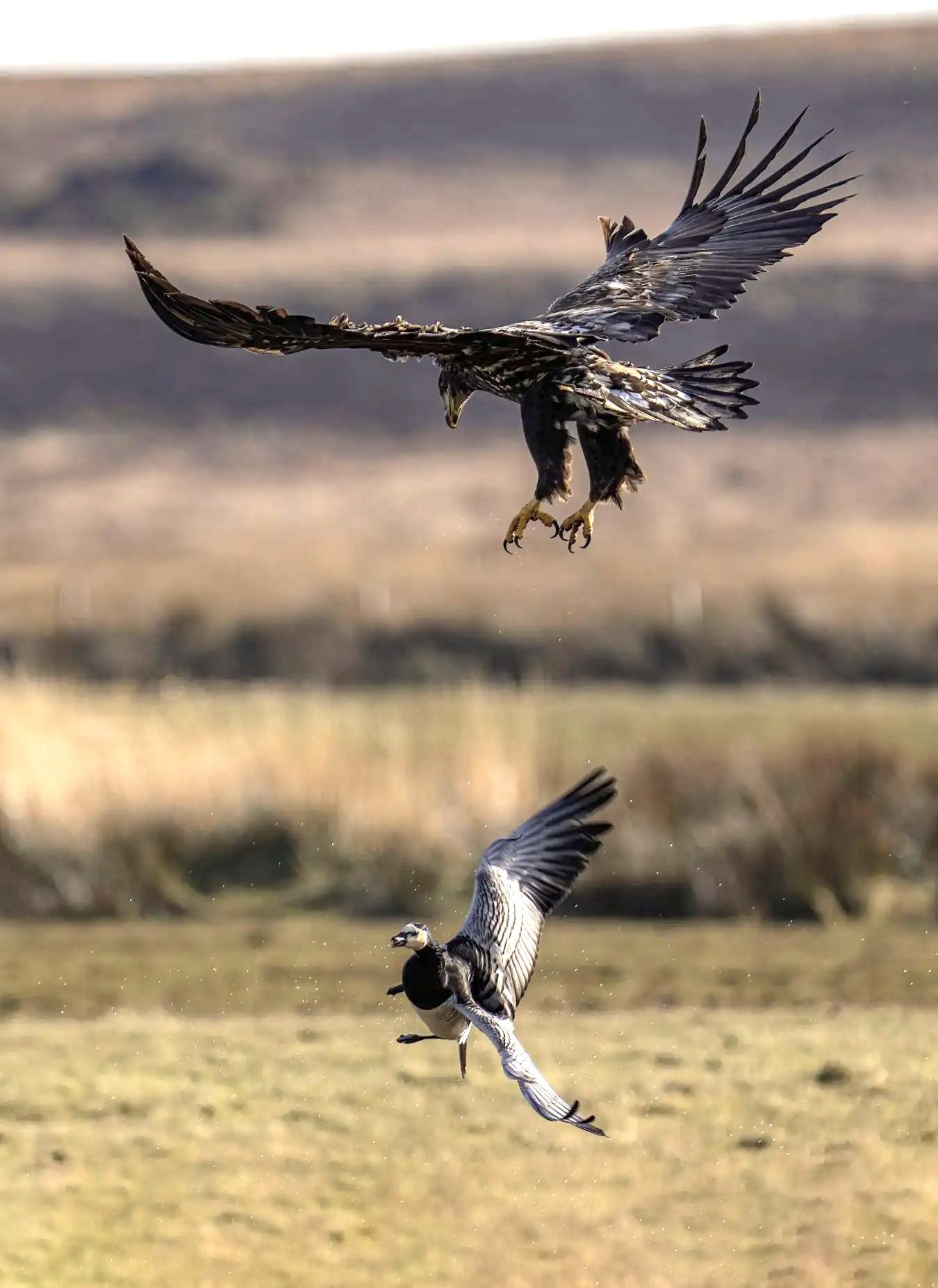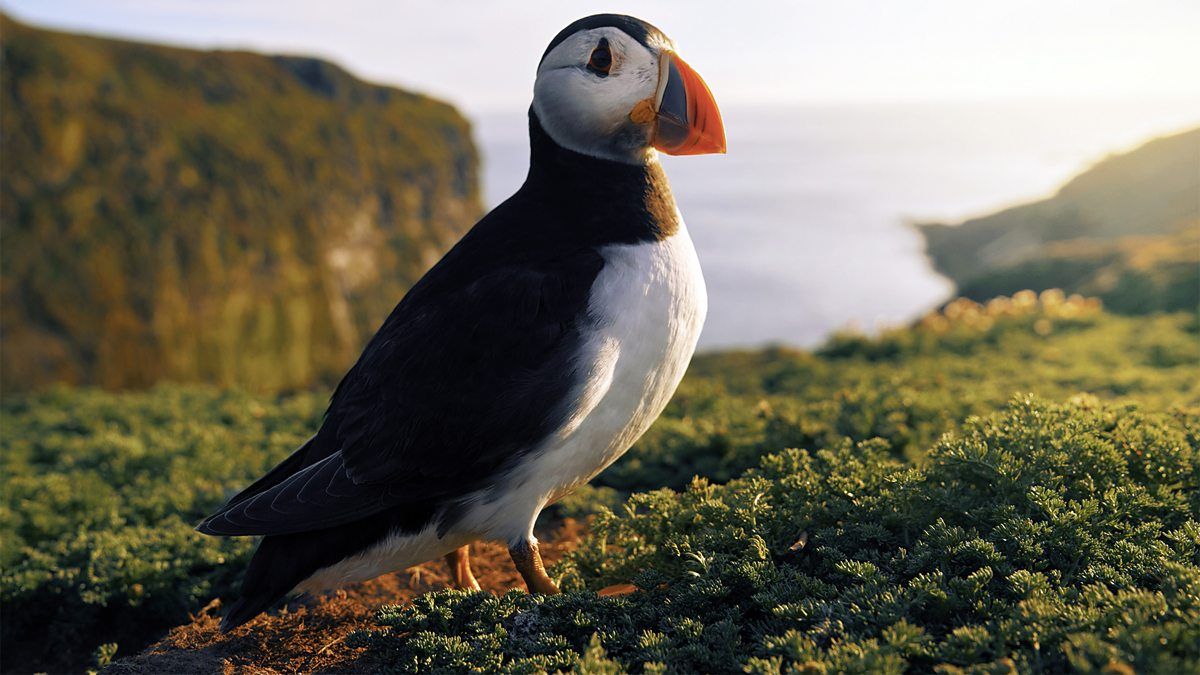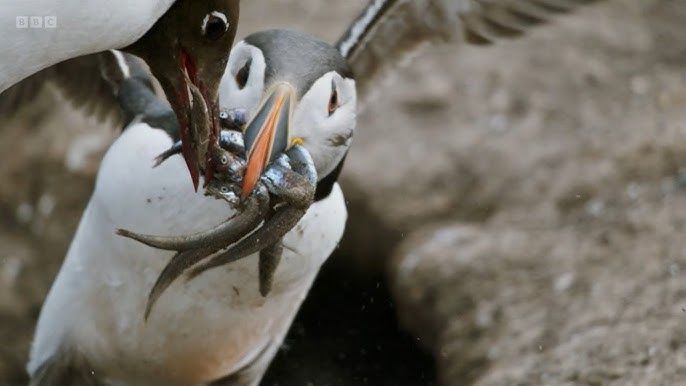
Why Nature Docs Rock
Want to hear something gross? If you don't, too bad. I'm gonna say it no matter your response ...
I just got an ingrown toenail removed. Cue the disgusted cringe reaction from the crowd.
If you haven't had one of these lovely procedures before, I envy you. This is my third time having surgery on a lower appendage, and each one has always been more excruciating than the last. Nobody likes getting shots, but getting one of your little piggies filled with anesthesia is the worst. Plus, all the cutting, ripping, pulling, and bleeding is no fun either.
The reason I'm telling you this is that I was laid up basically all of New Year's Eve/Day recovering, under strict doctors’ orders to walk as little as possible. And that placed me firmly on my couch, with few options of how to occupy my time.
Now this might come as a surprise to y'all, but I really don't watch much TV anymore. Ever since I left the entertainment industry, content has lost a bit of its luster. I just don't get the same joy from it that I used to. Even when something is objectively good, I can't help but analyze its elements. The structure, the arcs, the emotional resonance. It's kinda like that scene with Cypher and Neo in the first Matrix film, when they're looking at the green lines of code that make up the program. "I don't even see the code," Cypher says, "All I see is blonde, brunette, redhead."
Talk about a character who resembles (and is as annoying as) an ingrown toenail, am I right?
Anyway, there I am, scrolling through Prime Video, looking for something to watch, and I land on a David Attenborough documentary. With nothing better in sight, I turn it on.
And holy shit was it good. Compelling "AF" as the kids say.
The next six hours flew by in the blink of an eye. I binged watched Wild Isles in a single afternoon. And when I was done, I realized a few things:
1) Nature documentaries are badass as hell, and I will for sure be watching more in the future.
2) David Attenborough probably has the best job in the world, and ...
3) The reason that shows like this work so well is because they contain all the critical elements of telling a great story. And therein lies today's lesson.
Any narrative can be engaging and engrossing, whether it be a nature doc or your passion project screenplay, if you have the essential pieces in place.
So, let's spend the rest of our time together going over what makes these shows so great, and how you all can apply it to your writing. Let's start with the most basic one first:
ALL THE "CHARACTERS" HAD A CLEAR GOAL
I put characters in quotes above, because in this case, the character really is whatever animal the segment is focusing on. And there are multiple segments in each episode of this series. But in this case, we're going to use this little guy as the example:

Meet Perry the Puffin! Isn't he the cutest?! I love him already, and you should, too. If you don't, you're a psychopath.
Back to the point, Perry is a dad to a flock of little puffin chicks, and it's his responsibility to feed them. So, off he goes into the ocean looking for food. Weeeeeeee!!
Perry's a good hunter, so naturally, he gets a mouth load of fish for his family, but when he emerges from the water, he realizes that ...
THE CHARACTERS HAVE A CLEAR PROBLEM
There are other birds loitering around. They want to steal the fish that Perry worked so hard for.
He can't let that happen.
Thus begins the cornerstone of any nature documentary: the chase sequence. Perry zigs and zags all around (in epic slow motion) while these nasty seagulls try to snatch his children's lunch straight out of Perry's mouth.
Will he escape and bring home the bacon?? Or will these greedy bastards make him go home, empty handed?! It's the classic sheriff vs. bandit, Wild West tale!

Anyone who has ever watched one of these programs knows these segments are unequivocally the best part. It's why we all tune in, right? To see who wins ... predator or prey?
But why is this part so good? That's the question we're seeking to answer today, and it comes down to a few reasons.
THESE MOMENTS HAVE CLEAR STAKES
I've talked about this before, but stakes are vital to any great story. Comedy, drama, documentary ... literally anything. This is one of the bedrock principles of weaving an elevated narrative. Without stakes (aka, the bad stuff that might happen if the hero doesn't achieve his/her goal), there is no tension.
Tension leads to drama. And drama leads to viewer engagement. We're on the hook to see the end result.
But there's more to it, isn't there? There's also the fact that:
THE STAKES HAVE HEFTY IMPLICATIONS
It's true that there are a variety of stakes that a story can have ... but it's also true that one kind of stakes towers above all the rest: the stakes of life-or-death. These are, inarguably, the most compelling version.
Why is that you ask?
Because there are clear, drastic, and irreversible consequences as a result of them. Death is something everyone understands. And it's something that most everyone fears. There is no coming back from it.
For those reasons, there's obvious weight behind the situation. If A does not occur, then B happens. And we don't want to get to B. It adds instant gravity to the scene. Which is one of the reasons why we can't look away.
But back to the matter at hand, at the end of it all (no spoilers here, I'll let you watch Wild Isles to see who comes out on top), Perry returns to his nest. And thus we get:
EACH STORY HAS A CLEAR CONCLUSION
Win or loss. Victory or defeat. Whichever outcome is reached, the audience knows the result. There's no opaqueness to the narrative. We get a decisive finale. And this ends the tale.
It's all pretty basic, right? It's the Storytelling 101 fundamentals that I pound into your brains article after article.
But if it were so simple, wouldn't more writers be picking up on it by now? I'd think so. ;)
My point is, you can look at any good story and see these elements in action. Whether it's about a duck trying to outrun an eagle to live another day, or an eagle hunting a duck so its chicks can eat ... all great tales follow that basic fundamental formula.
But wait, there's more!
Because in that last paragraph, I touched on another important aspect of writing that too many scribes overlook, and that nature documentaries superbly nail:
EACH STORY HAS A CLEAR POV
I read wayyyy too many screenplays without this. They try to take the "God's Eye," third-person perspective. Where there are tons of characters, and we're watching all of them all at once.
Hear me right now people: THIS RARELY WORKS (I want to say "never," but I'm sure there's some uber-talented writer out there who can pull it off).
The fact of the matter is that narratives are better when they are told from a very clear perspective, and that point of view can change a lot depending on the viewpoint.
It changes who the good guy is.
It also changes who the bad guy is.
But, if you do it correctly, it doesn't change how impactful the story is.
Take the above example ... in one situation, it's the story of an innocent duck, minding its own business, trying to evade a ferocious predator who wants to kill it. The duck is the protagonist, in this instance. And the eagle is the antagonist.
Pretty simple, right? But if you flip the script, what happens?
The inverse is that the story is about a mother eagle who has a whole nest full of hungry babies (who also happen to be endangered). She has to feed them or else they'll starve (there we go with the stakes again). So, she goes hunting and finds a duck.
Perfect! Time for a chase scene.
In this case, the eagle is the protagonist, and the duck is the antagonist. The duck running away is what is blocking the eagle from achieving its goal.
Notice how both stories work, through their own distinct POVs. This is the power of a clear point of view. And young writers should absolutely utilize this more if they want their work to increase in effectiveness.
There's one final point I need to make before I wrap up. It's the secret sauce as to why these shows are so good. And that's that ...
NATURE DOCUMENTARIES MANIPULATE YOUR EMOTIONS PERFECTLY
They hit you right in the feels, don't they? Humans always have a soft spot for animals. We love them! But you know what we love even more than adult animals?
Baby animals.
They're so cute and adorable. We just want to cuddle them and love them and take them home to make them our pets.
Notice how often these shows will focus on a young deer. Or on a tiny, little mouse, running from an evil owl. Or even on a pack of ducklings.
We want good things to happen to the cute, baby animals. There's an inherent innocence to their youth. They can't defend themselves like an adult can. Thus, when they are in danger, the tension immediately becomes heightened. And, going back to stakes, we know the peril they face is grave, imminent, and irreversible.
Storytelling is hard, no doubt. But it doesn't have to be complicated. Far too many writers I work with make things difficult for themselves by not following the basic formula. And it's a structure that is really easy to understand if you put effort into it.
So, I encourage each and every one of you to go home tonight and watch a nature documentary. ANY nature documentary! I guarantee if you do so through the lens of narrative storytelling, you'll learn something.
And you don't even need an ingrown toenail to do it.
Lucky you.
Godspeed y'all, and happy writing.
*Feature photo from Wild Isles by Jesse Wilkinson: A young white-tailed eagle hunts an adult barnacle goose.

